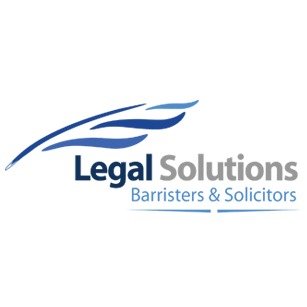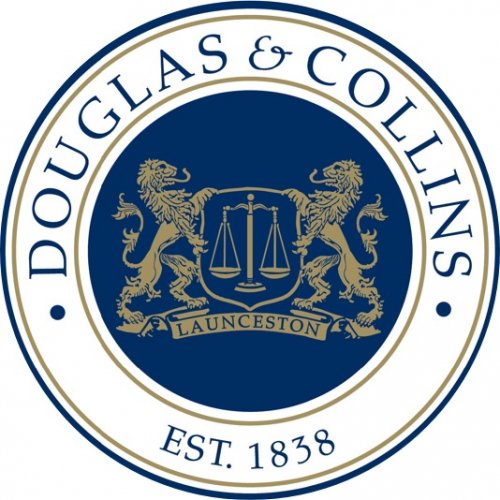Best Conveyancing Lawyers in Launceston
Share your needs with us, get contacted by law firms.
Free. Takes 2 min.
Free Guide to Hiring a Real Estate Lawyer
List of the best lawyers in Launceston, Australia
About Conveyancing Law in Launceston, Australia
Conveyancing in Launceston, Australia, refers to the legal process of transferring property ownership from one person or entity to another within this northern Tasmanian city. This process involves a range of legal, administrative, and financial tasks which ensure that the title of the property is correctly passed on, outstanding rates or debts are settled, and all government regulations are complied with. Conveyancing laws in Launceston are primarily governed by Tasmanian legislation, including the Conveyancing and Law of Property Act 1884, and involve compliance with local council regulations, Land Titles Office requirements, and other statutory bodies.
Why You May Need a Lawyer
There are numerous situations where having a qualified lawyer or licensed conveyancer is essential in Launceston. These include:
- Buying or selling residential property, units, or commercial property
- Transferring property ownership due to marriage, divorce, death, or inheritance
- Handling disputes over boundaries, encroachments, or rights of way
- Clarifying legal obligations in off-the-plan purchases or subdivided land
- Navigating lender requirements and mortgage documentation
- Addressing issues found in property title searches or council records
- Ensuring compliance with local zoning laws and permits
- Dealing with unpaid rates and taxes attached to the property
- Managing risk related to fraud or incomplete documentation
A qualified legal professional helps to protect your rights, minimize risk, and ensure all legal requirements are met for a smooth conveyancing process.
Local Laws Overview
Conveyancing in Launceston is subject to a specific framework of local laws and procedures. Key elements include:
- Property law is governed primarily by state legislation, notably the Conveyancing and Law of Property Act 1884 (Tas), Land Titles Act 1980 (Tas), and associated regulations
- All land transactions must be registered with the Land Titles Office of Tasmania
- Both the buyer and seller need a written contract, which must contain certain statutory disclosures and conditions
- Searches must be conducted to uncover any encumbrances, easements, covenants, or planning restrictions on the property
- Stamp duty and registration fees are usually payable, with specific exemptions and concessions for certain buyers (such as first home buyers)
- Compliance with local council requirements is essential, including rates, planning permits, and certificates of occupancy
- Land Tax implications must be understood before settlement
- Electronic conveyancing is increasingly adopted, meaning some transactions are processed through online platforms like PEXA
Understanding these facets of local law is crucial, as errors or omissions can lead to financial loss or delays in settlement.
Frequently Asked Questions
What does a conveyancer or conveyancing lawyer do?
A conveyancer or legal practitioner handles all aspects of the property transfer process, including preparing contracts, conducting property title searches, managing settlements, and ensuring all legal obligations are met.
Can I do my own conveyancing in Launceston?
While it is legally possible to do your own conveyancing, it is not recommended due to the complexity of the process, risks of error, and possible legal and financial ramifications.
What documents are involved in a property settlement?
Critical documents include the contract of sale, vendor statement, title search, rates and water certificates, and settlement statements provided by the conveyancer or lawyer.
How long does the conveyancing process take?
The typical timeframe is 4 to 8 weeks from contract exchange to settlement, though this can vary based on contract conditions, finance approval, and searches.
What is a contract cooling-off period?
Tasmania does not mandate a cooling-off period for residential property sales, so buyers need to be thorough before signing a contract. Negotiated cooling-off terms may still be possible.
Are there taxes or fees when buying property in Launceston?
Yes, buyers should expect to pay stamp duty, registration fees, and possibly Land Tax, depending on the property type and their individual circumstances.
What searches should be done before settlement?
Essential searches include title searches, council and water rates, land tax, planning restrictions, and any building approvals or notices affecting the property.
Can I withdraw from a contract once signed?
Once contracts are signed and exchanged, withdrawal may only be possible under specific contract conditions or as permitted by law, which could involve financial penalties.
Do I need to be present at settlement?
Physical presence at settlement is usually not required, as your conveyancer or lawyer will attend to all settlement procedures on your behalf, often electronically.
How can disputes during conveyancing be resolved?
Disputes are often resolved through negotiation between lawyers or conveyancers. If unresolved, the matter can progress to mediation or court depending on the issue.
Additional Resources
If you are seeking further guidance or need to verify information, the following resources can be helpful:
- Land Titles Office Tasmania - for information on land records and registration
- Department of Natural Resources and Environment Tasmania - property and land management
- Tasmanian Law Society - to find qualified property lawyers or conveyancers
- Consumer, Building and Occupational Services Tasmania - for consumer rights in property transactions
- Launceston City Council - for local zoning, rates, and property planning information
Next Steps
If you need legal assistance with conveyancing in Launceston, here are recommended next steps:
- Gather all property-related documents, such as contracts, title documents, and correspondence
- Research and select a qualified conveyancer or lawyer with local experience
- Arrange an initial consultation to discuss your needs and obtain a quote
- Clarify what is included in the conveyancer's services and ask about their experience with properties similar to yours
- Work closely with your chosen professional to ensure all legal, financial, and compliance matters are addressed promptly
- Keep communications open with all parties, including your lender, agent, and legal professionals
Acting early with the help of a qualified legal expert ensures a smoother and legally sound property transaction in Launceston.
Lawzana helps you find the best lawyers and law firms in Launceston through a curated and pre-screened list of qualified legal professionals. Our platform offers rankings and detailed profiles of attorneys and law firms, allowing you to compare based on practice areas, including Conveyancing, experience, and client feedback.
Each profile includes a description of the firm's areas of practice, client reviews, team members and partners, year of establishment, spoken languages, office locations, contact information, social media presence, and any published articles or resources. Most firms on our platform speak English and are experienced in both local and international legal matters.
Get a quote from top-rated law firms in Launceston, Australia — quickly, securely, and without unnecessary hassle.
Disclaimer:
The information provided on this page is for general informational purposes only and does not constitute legal advice. While we strive to ensure the accuracy and relevance of the content, legal information may change over time, and interpretations of the law can vary. You should always consult with a qualified legal professional for advice specific to your situation.
We disclaim all liability for actions taken or not taken based on the content of this page. If you believe any information is incorrect or outdated, please contact us, and we will review and update it where appropriate.











